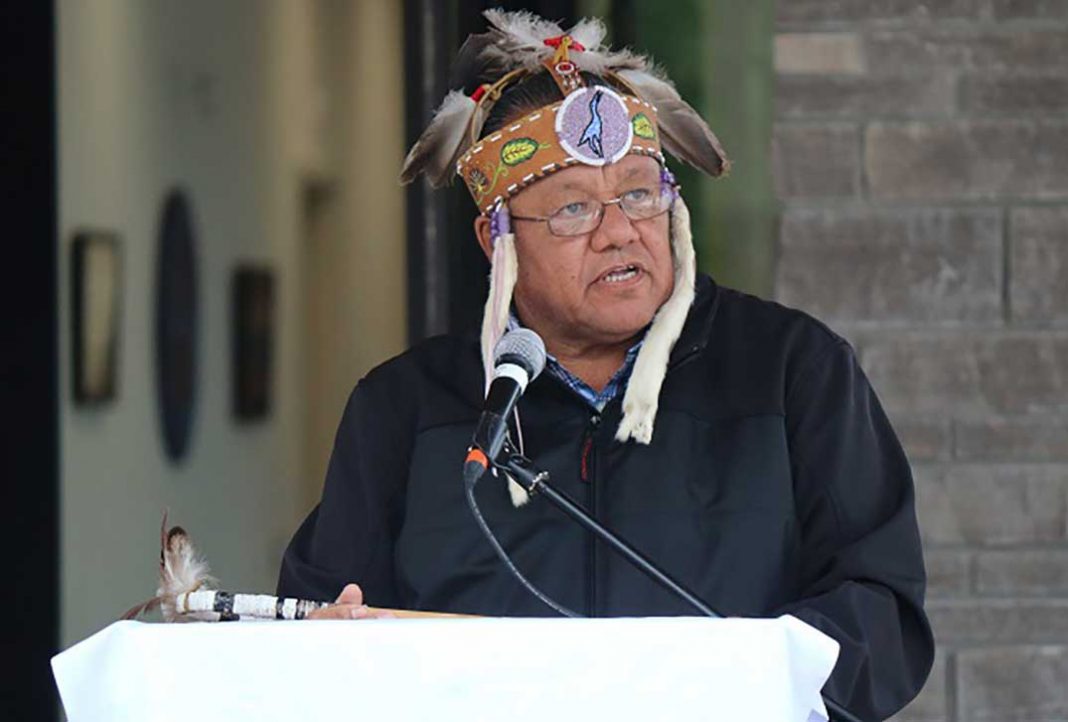Anishinabek Nation in full support of measure
OTTAWA – Lumping all Indigenous peoples into a single amorphous entity is a staple of racism, systemic or otherwise, and the latest debate over a federal bill aimed at recognizing the United Nations Declaration on the Rights of Indigenous Peoples (UNDRIP) provides an example of the pitfalls involved in what might seem a simple and straightforward redress of historic inequities.
UNDRIP is an international instrument adopted by the United Nations on September 13, 2007, aimed at enshrining rights that “constitute the minimum standards for the survival, dignity and well-being of the indigenous peoples of the world.”
UNDRIP is cited as protecting collective rights that may not be addressed in other human rights charters that emphasize individual rights and as safeguarding the individual rights of Indigenous people. UNDRIP is the product of almost 25 years of deliberation by UN member states and Indigenous groups.
“This is a positive way forward, this is long overdue, there are no surprises in this bill … this is the time to do our best as Parliamentarians to move this forward,” Justice Minister David Lametti said as he moved to limit debate on the bill.
The Anishinabek Nation supports Bill C-15, as does the Assembly of First Nations (AFN), but after hundreds of years of colonial gamesmanship over the wording of legislation and interpretation of treaty rights there remains a significant distrust of Canadian governments that extends into Indigenous lobby groups and leadership.
“Anishinabek Nation supports Bill C-15,” affirmed Anishinabek Nation Grand Council Chief Glen Hare. But even the grand council chief tempers that support with a good dose of scepticism. “We hear a lot of great things from politicians around election time,” he said, noting that election fervour is currently swirling in the governing Liberals’ ranks. “We need to see action on the ground.”
Grand Council Chief Hare said that his organization supports the bill in principle as it is viewed as one step forward in the ultimate goal of getting First Nations communities out from under the patriarchal Indian Act and provides funding to assist communities in creating their own laws.
“We have been working towards this for as long as I can remember,” he said.
The government’s bill to implement the UNDRIP is a game changer,” said AFN National Chief Perry Bellegarde, urging MPs to pass Bill C-15 quickly and for Ottawa to bring the bill into effect a year earlier than outlined.
But all is not unanimity among Indigenous leadership across the country, particularly among the western First Nations that are already largely self-governing. Treaty 8 Grand Chief Arthur Noskey disagrees with Grand Chief Hare, asserting Bill C-15, which is currently going through the committee process in Parliament, should be negotiated on a nation to nation basis and not through the AFN.
Treaty 6 Grand Chief Vernon Watchmaker, along with chiefs from Treaty 7 have called Bill C-15 flawed and allege the legislation was developed without the free, prior and informed consent of the treaty nations. Treaty 8 lies in Northern Alberta, while Treaty 6 embraces the centre of Alberta and Saskatchewan and Treaty 7 is based in southern Alberta.
“AFN does not speak on behalf of Treaty 8 and I believe that they are not in tune or in touch with a lot of our grassroots people in understanding our sovereign relationships that we have,” Grand Chief Noskey says. “Because if they did, if they knew that these treaties were sovereign to sovereign agreements, why are they there trying to speak on behalf of them?”
Even within the AFN there is concern about that organization “negotiating” with the federal government over the UNDRIP recognition.
Marlene Poitras, regional chief of the AFN in Alberta, says the AFN shouldn’t be negotiating Bill C-15. “The AFN is a lobby group. We are there to facilitate the direction as provided by the chiefs in assembly, and that’s our role,” she said. “It’s not to negotiate and make decisions on behalf of First Nations. It’s the nations that do that, not the AFN as an assembly.”
The Conservatives, in the meantime, are sounding the alarm over UNDRIP, claiming its recognition will result in a veto power for Indigenous communities over all future resource development.
Following procedural moves from the Conservatives that Liberal Justice Minister David Lametti characterized as “dilatory tactics” aimed at stalling any and all Liberal government legislation, the governing Liberals moved closure (a time limit on debate), supported by the NDP to limit debate on the bill before sending it to committee. Minister Lametti stressed the aim of the time allocation motion was to ensure swift passage of the long-awaited UNDRIP bill.
Minister Lametti went on to say that “engagements would continue throughout the Parliamentary process,” and that Parliamentarians have the opportunity at several stages to examine the bill in depth, hear from Indigenous partners and consider any amendments that are brought forward for inclusion. “We are open to any proposed improvements to Bill-C-15,”″ he said.
Crown-Indigenous Relations Minister Carolyn Bennett said there is “complete consensus” from legal and Indigenous experts that the veto power claimed by the Conservatives is not the case.
Minister Bennett said a consensus will be needed among Indigenous partners co-developing the bill with the government on how to define this consent provision—something she noted has not been reached to date.
Church groups have also lined up to support the move to recognize UNDRIP.
“We strongly encourage Parliamentarians currently debating Bill C-15 to work diligently, in consultation and solidarity with Indigenous peoples in Canada, so as to ensure the timely and necessary inclusion of UNDRIP within Canadian law and thus contribute to truly respectful and just relations in this land,” said an April 26 statement from the executive committee of the Canadian Conference of Catholic Bishops (CCCB). The CCCB’s statement follows the April 21 endorsement of the proposed legislation by the Canadian Religious Conference, which represents 11,000 religious order sisters, brothers and priests in Canada which said the bill “is instrumental for renewing the spirit of reconciliation in Canada and encouraging the work of decolonization, in order to establish right relationships and a common vision for the future of our country.”
The Association of Iroquois and Allied Indians in Ontario along with several smaller Indigenous organizations also believe C-15 doesn’t go far enough in recognizing prior Indigenous sovereignty over lands and resources.
Bill C-15 will now be debated in committee before returning to be debated before Parliament.





